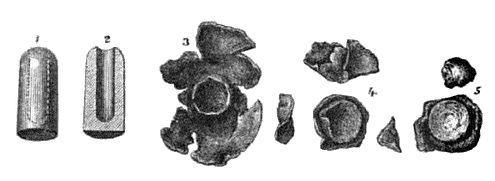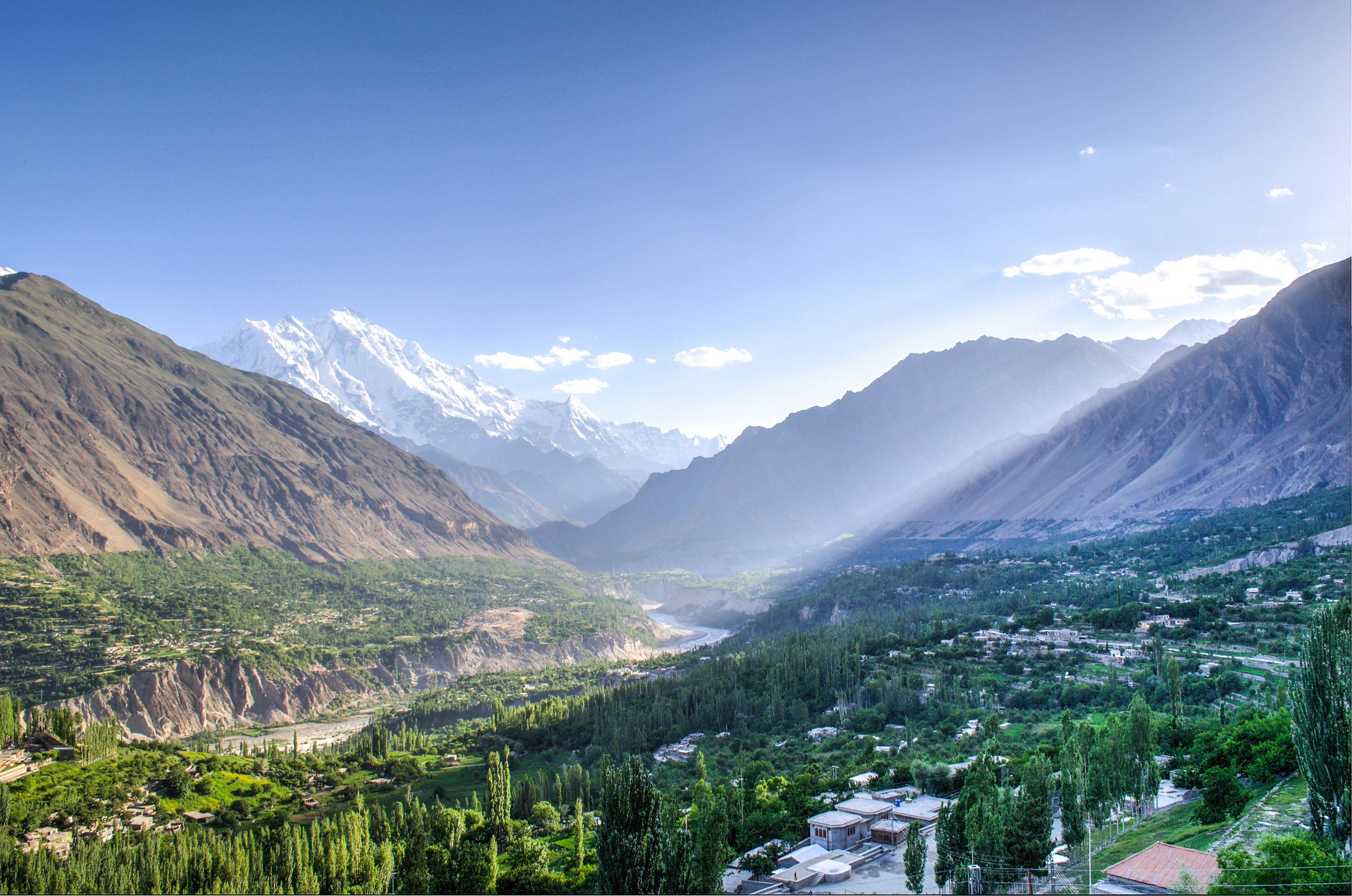|
Hunza–Nagar Campaign
The Hunza-Nagar Campaign was an armed conflict in 1891 fought by troops serving the British Raj against the princely states of Hunza and Nagar in the Gilgit Agency (now part of the Gilgit-Baltistan region in Pakistan). It is also known in Pakistan as the Anglo-Brusho War or Jangir-e-Lae. Prelude Colonel Algernon George Arnold Durand, the Political Administrator of the Gilgit Agency, undertook measures to strengthen British influence in the region. These efforts, aimed at furthering British strategic interests, involved infrastructure development initiatives such as road, telegraph, and mail system improvements. All the while, Durand maintained communication with the Mir of Gilgit. Notably, Durand initiated the improvement of the road connecting Kashmir to the Russian frontier, which passed through Hunza and Nagar. The rulers of these two states perceived these developments as a potential threat to their previously enjoyed isolation. Following the establishment of the Gilgi ... [...More Info...] [...Related Items...] OR: [Wikipedia] [Google] [Baidu] |
List Of Anglo-Indian Wars
The Anglo-Indian wars were the several wars fought in the Indian Subcontinent, over a period of time, between the British East India Company and different Indian states, mainly the Mughal Empire, Kingdom of Rohilkhand, Rohilkhand, Kingdom of Mysore, Bengal Subah, Subah of Bengal, Maratha Confederacy, Sikh Empire of Punjab, Talpur dynasty, Kingdom of Sindh and others. These wars led to the establishment of British rule in India, British colonial rule in India. List of wars The list excludes single sieges and major battles: * Anglo-Mughal war (1686–1690), Anglo-Mughal war (1686–1690) * First Carnatic War (1746–1748) * Second Carnatic War (1749–1754) * Polygar Wars (1752–1847) * Third Carnatic War (1756–1763) * Bengal War (1756–1765) ** Battle of Plassey (1757) * First Anglo-Mysore War (1767–1769) * Sannyasi rebellion, Sannyasi Rebellion (1770–1777) * First Anglo-Maratha War (1775–1782) * Second Anglo-Mysore War (1780–1784) * 1781 revolt in Bihar, Bihar Revolt ... [...More Info...] [...Related Items...] OR: [Wikipedia] [Google] [Baidu] |
Gilgit Agency
The Gilgit Agency () was an agency within the British Indian Empire. It encompassed Hunza, Nagar and the governorships of Yasin, Koh Ghizer, Ishkoman, Punial and the tribal areas of Gor, Darel, Tangir, the district of Chilas and the Gilgit tehsil of the princely state of Jammu and Kashmir.The primary objective of establishing the Gilgit Agency was to bolster and fortify these regions, particularly in the context of concerns about Russian encroachment in the area. The agency headquarters was based in the town of Gilgit, within the Gilgit tehsil of Jammu and Kashmir. Gilgit Agency was bounded in the west by the Chitral State, in the northwest by Afghanistan's Wakhan corridor, in the east by Chinese Turkestan, in the south by the Kashmir province, and in the southeast by the Ladakh ''wazarat'' of Jammu and Kashmir (which included Baltistan). An Officer on Special Duty was established in 1877 in the town of Gilgit till 1882 to monitor the Baroghil and Ishkoman passes. After ... [...More Info...] [...Related Items...] OR: [Wikipedia] [Google] [Baidu] |
Chitral Expedition
The Chitral Expedition (Urdu:چترال فوجی مہم) was a military expedition in 1895 sent by the British authorities to relieve the fort at Chitral, which was under siege after a local coup following the death of the old ruler. An intervening British force of about 400 men was besieged in the fort until it was relieved by two expeditions, a small one from Gilgit and a larger one from Peshawar. Background to the conflict In the last phase of the Great Game, attention turned to the unclaimed mountainous area north of British India along the later Sino-Russian border. Chitral was thought to be a possible route for a Russian invasion of India, but neither side knew much about the local geography. The British sent people like George W. Hayward, Robert Shaw and probably some Pundits north to explore. On 18 July 1870, Hayward was attacked, captured and murdered. The ruler of Chitral may have had some involvement in Hayward's murder. From 1871 there were Russian explorers in t ... [...More Info...] [...Related Items...] OR: [Wikipedia] [Google] [Baidu] |
Baltit Fort
Baltit Fort () is a fort in the Hunza valley, near the town of Karimabad, in the Gilgit-Baltistan region of northern Pakistan. Founded in the 8th century CE, it has been on the UNESCO World Heritage Tentative list since 2004. The Mirs of Hunza abandoned the fort in 1945, and moved to a new palace down the hill. The fort started to decay which caused concern that it might possibly fall into ruin. Following a survey by the Royal Geographical Society of London a restoration programme was initiated and supported by the Aga Khan Trust for Culture Historic Cities Support Programme. The programme was completed in 1996 and the fort is now a museum run by the Baltit Heritage Trust. Awards and recognition *2005 ''Time Asia ''Time'' (stylized in all caps as ''TIME'') is an American news magazine based in New York City. It was published weekly for nearly a century. Starting in March 2020, it transitioned to every other week. It was first published in New York Ci ...'', Best of As ... [...More Info...] [...Related Items...] OR: [Wikipedia] [Google] [Baidu] |
Dum-dum Bullets
Expanding bullets, also known colloquially as dumdum bullets, are projectiles designed to expand on impact. This causes the bullet to increase in diameter, to combat over-penetration and produce a larger wound, thus dealing more damage to a living target. For this reason, they are used for hunting and by police departments, but are generally prohibited for use in war. Two typical designs are the hollow-point bullet and the soft-point bullet. Function and use Expanding bullets are designed to expand on impact, sometimes as much as twice the diameter. This will slow the bullet down and more of its kinetic energy will be transferred to the target, creating a larger wound channel. For this reason, expanding bullets are often used in hunting because their stopping power increases the chance of a quick kill. There are a number of designs used for hunting different game and for use in weapons with different muzzle velocities. Bullets used for medium and large game need better penetrat ... [...More Info...] [...Related Items...] OR: [Wikipedia] [Google] [Baidu] |
Pathans
Pashtuns (, , ; ;), also known as Pakhtuns, or Pathans, are an Iranic ethnic group primarily residing in southern and eastern Afghanistan and northwestern Pakistan. They were historically also referred to as Afghans until 1964 after the term's meaning had become a demonym for all citizens of Afghanistan regardless of their ethnic group. The Pashtuns speak the Pashto language, which belongs to the Eastern Iranian branch of the Iranian language family. Additionally, Dari serves as the second language of Pashtuns in Afghanistan, while those in Pakistan speak Urdu and English. In India, the majority of those of Pashtun descent have lost the ability to speak Pashto and instead speak Hindi and other regional languages. There are an estimated 350–400 Pashtun tribes and clans with a variety of origin theories. In 2021, Shahid Javed Burki estimated the total Pashtun population to be situated between 60 and 70 million, with 15 million in Afghanistan. Others who accept the ... [...More Info...] [...Related Items...] OR: [Wikipedia] [Google] [Baidu] |
Nilt Forts
Nilt is a town in nagar District, Gilgit–Baltistan, Pakistan Pakistan, officially the Islamic Republic of Pakistan, is a country in South Asia. It is the List of countries and dependencies by population, fifth-most populous country, with a population of over 241.5 million, having the Islam by country# .... It is located at 36°15'0N 74°25'0E with an elevation of 2260 metres (7417 feet). This area was conquered by the British in 1891 as part of the Hunza-Nagar Campaign. References External links * Populated places in Gilgit District {{GilgitBaltistan-geo-stub ... [...More Info...] [...Related Items...] OR: [Wikipedia] [Google] [Baidu] |
Nilt Fort
Nilt is a town in nagar District, Gilgit–Baltistan, Pakistan Pakistan, officially the Islamic Republic of Pakistan, is a country in South Asia. It is the List of countries and dependencies by population, fifth-most populous country, with a population of over 241.5 million, having the Islam by country# .... It is located at 36°15'0N 74°25'0E with an elevation of 2260 metres (7417 feet). This area was conquered by the British in 1891 as part of the Hunza-Nagar Campaign. References External links * Populated places in Gilgit District {{GilgitBaltistan-geo-stub ... [...More Info...] [...Related Items...] OR: [Wikipedia] [Google] [Baidu] |
Baltit
Karimabad (), formerly known as Baltit, is the capital of the Hunza District in Pakistan-administered Gilgit-Baltistan in the disputed Kashmir region. Etymology Karimabad was named in honour of Karim Aga Khan, the late spiritual leader of the Shia Ismaili Nizari community. Geography Karimabad town is situated on the western bank of the Hunza River, opposite Nagar Valley nestled in the lower Hunza Valley. It lies at an elevation of 8,200 feet (2,500 meters) above sea level. The town is characterized by its construction on stone-walled and steep-sloping terraces. Historically, Karimabad served as a caravan stop for travelers journeying through the Hindu Kush mountains en route to the Vale of Kashmir. The town is framed by deep gorges and is set against the backdrop of snow-clad mountain peaks like Rakaposhi, which stands at an altitude of approximately 25,000 feet (7,600 meters), Diran, Golden Peak and Ultar Peak. All four peaks have dedicated view points in and around ... [...More Info...] [...Related Items...] OR: [Wikipedia] [Google] [Baidu] |
Mir Of Nagar, Raja Azur Khan
''Mir'' (, ; ) was a space station operated in low Earth orbit from 1986 to 2001, first by the Soviet Union and later by the Russia, Russian Federation. ''Mir'' was the first modular space station and was assembled in orbit from 1986 to 1996. It had a greater mass than any previous spacecraft. At the time it was the largest artificial satellite in orbit, succeeded by the International Space Station (ISS) after ''Mir'''s orbital decay, orbit decayed. The station served as a microgravity laboratory , research laboratory in which crews conducted experiments in biology, human biology, physics, astronomy, meteorology, and spacecraft systems with a goal of developing technologies required for permanent occupation of Outer space, space. ''Mir'' was the first continuously inhabited long-term research station in orbit and held the record for the longest continuous human presence in space at 3,644 days, until it was surpassed by the ISS on 23 October 2010. It holds the recor ... [...More Info...] [...Related Items...] OR: [Wikipedia] [Google] [Baidu] |
Dogra Regiment
The Dogra Regiment is an infantry regiment of the Indian Army. The regiment traces its roots directly from the 17th Dogra Regiment of the British Indian Army. When transferred to the Indian Army like its sister regiments, the numeral prefix was removed. Dogra Regiment Units Maximum filled with Rajputs And Sikh. Units of the Dogra Regiment have fought in all conflicts that independent India has been engaged in, making it one of the most prestigious and most decorated regiments of the Indian Army. History The Dogras, the inhabitants of 'Duggar' or Dogra land hail from the Indian states of Jammu and Kashmir (union territory), Jammu and Kashmir, Himachal Pradesh and the hilly regions of Punjab, India, Punjab. The Dogra Regiment traces its lineage to 1858, when the Agra Levy was raised by the British East India Company as part of the Bengal Army. The Dogras were added into the Bengal Army on the recommendation of Sir Frederick Roberts, 1st Earl Roberts, Fredrick Roberts, the then ... [...More Info...] [...Related Items...] OR: [Wikipedia] [Google] [Baidu] |




